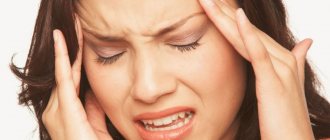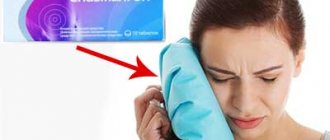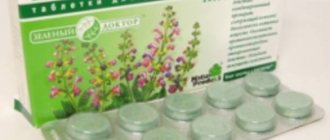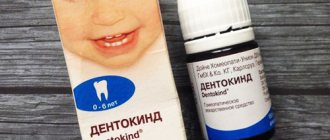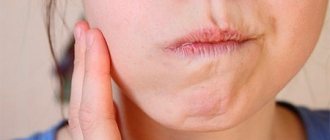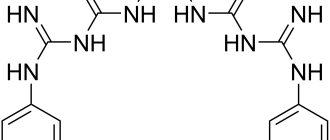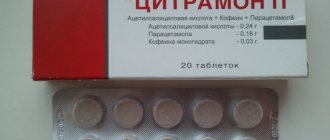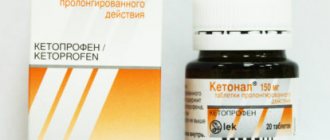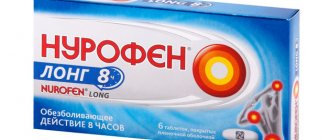Toothache can disable you at any inopportune moment. And the variety of modern analgesics confronts the patient with a difficult choice. You can regularly find the analgesic Pentalgin in colorful packaging on pharmacy shelves. The drug comes in two types, one of which is available for free sale, the second is sold strictly according to a prescription. What is the difference between them, and which is better? Is it worth choosing this drug at all? Will Pentalgin help with toothache when there are several painful days left before a visit to the dentist?
Description of the drug
Pentalgin has a single release form - tablets. They can be of different colors: bluish, yellow, cream. Each tablet is divided in half by an indented line and contains an embossed name. The package may contain 10 or 12 doses of Pentalgin.
Reviews from those who took Pentalgin for toothache are mostly positive
Patients who have dealt with acute toothache usually praise Pentalgin, sold by prescription. How is the drug effective?
Typically, the drug is prescribed to the patient for the complex treatment of various conditions associated with fairly severe pain:
- Neuralgia
- Migraines
- Muscle spasms
- After injuries and operations
The effective action of the tablet's components encourages dentists to prescribe Pentalgin for severe toothache.
Pentalgin is a combination of 5 components that actively act on the painful area:
- Metamizole sodium (analgin) – lowers body temperature, relieves inflammation, eliminates pain
- Paracetamol - has an effect similar to that of analgin
- Caffeine – prevents migraines, improves mood, stimulates the central nervous system and prevents collapse
- Phenobarbital - has a selective inhibitory effect on the nervous system, thereby calming pain receptors and relaxing the body
- Codeine – has a calming effect on the body and relieves pain
It is the presence of codeine in tablets that forces pharmacists to refuse to sell it without a prescription. What is codeine and why is it dangerous for the human body?
When should you not take Pentalgin for toothache?
This analgesic is contraindicated in the following cases:
- During pregnancy and during breastfeeding.
- For arterial hypertension due to the ability of caffeine to increase blood pressure.
- In the presence of renal pathologies.
- For diseases of the digestive system - for example, for peptic ulcers of the stomach or duodenum.
- In the case of diseases that cause breathing problems, such as, in particular, bronchial asthma.
Contraindications to the use of pentalgin - instructions for use
Metamizole, contained in pentalgin, is a non-steroidal anti-inflammatory drug. A general contraindication for this group of drugs is individual intolerance, expressed in the so-called aspirin triad, which includes severe allergic reactions - up to fatal Quincke's edema, bronchospasm and the formation of nasal polyps. If a person has ever had a similar reaction to acetylsalicylic acid, ibuprofen, nimesulide, etc., then it is best for him not to take pentalgin at all, or, in extreme cases, to use it only after first consulting with a doctor.
In addition, metamizole can cause a sharp drop in the number of white blood cells, leading to a severe weakening of the immune system, which can even result in death. Therefore, an overdose of pentalgin and its use for too long should not be allowed.
The consumption of alcoholic beverages is strictly contraindicated while taking Pentalgin. Firstly, the components of the drug, in particular metamizole and paracetamol, are deactivated in the liver, and therefore the combined use of the drug and alcohol complicates the functioning of this organ. As a result, alcohol intoxication becomes more severe, and the likelihood of side effects from the drug increases significantly. Secondly, pentalgin contains substances that affect the nervous system - phenobarbital and codeine. When drinking alcohol-containing drinks, the combined effect of alcohol and medication components can cause an unpredictable mental reaction.
It is undesirable to drink coffee and strong tea while taking Pentalgin, especially if you have hypertension. Since both the medicine and these drinks contain caffeine, the total dose may be too high for the body.
When using Pentalgin, you should not drive or perform work that requires increased attention. Phenobarbital has a relaxing effect and slows down the reaction. As a result, a person is more likely to have an accident or be injured at work.
Addiction
Codeine is widely used in pharmaceuticals, but it is derived from morphine, which means it is a narcotic substance that can cause addiction in humans.
It is no coincidence that the State Drug Control Service excluded codeine-containing drugs from free sale. The reason was the increase in the number of drug addicts who gained easy access to the drug. It was enough to buy several packs of “effective” cough or migraine tablets - and a new dose was received.
The presence of Codeine in Pentalgin causes drug addiction
Drug addicts not only used medications to obtain codeine synthetically. They swallowed pills in packs, after which the body received such toxic shocks that many organs began to fail. Therefore, now drugs with codeine can only be obtained with a doctor’s prescription and only in the amount specified by the doctor.
Codeine affects the brain, causing the body to relax, and also actively suppresses the cough reflex in humans - many drugs with codeine are created specifically for the treatment of severe cough. But it also helps with pain. Already half an hour after taking the pill, the patient can breathe a sigh of relief.
But once you take the pills for about a week, the body itself will begin to reach for a calm, measured state without pain symptoms. Addiction develops, and soon one tablet will no longer be enough to get complete help. The patient will begin to increase the dosage and become dependent on codeine. And it is very difficult to wean yourself off the “narcotic” Pentalgin: sleep is disturbed, waves of acute pain permeate the whole body, the oral mucosa dries out, the mood becomes aggressive and nervous. This is a real “withdrawal”.
Analogs
The pharmacological market presents a variety of painkillers and anti-inflammatory drugs, among which you can choose analogues of Pentalgin. But some analogues include narcotic analgesics. Therefore, independent replacement of Pentalgin with other means is not recommended. The most famous and effective analogues are:
Sedalgin. The analgesic is widely used for various pain syndromes: migraine, neuralgia and toothache caused by pulpitis. The dosage of the drug is the same as the dosage of Pentalgin.- Plivalgin. Used for moderate pain syndromes, colds and flu. But it cannot be used by people suffering from peptic ulcers, arrhythmia and intracranial hypertension.
- Pentamialgin. It not only has an analgesic effect, but also acts as an anti-migraine and anti-tussive agent, normalizes blood flow and relaxes the walls of blood vessels.
- Pentalfen. Relieves pain caused by blood pressure disorders, helps with fever and ARVI, migraine, arthralgia.
A new drug with an old name
I tried to find a way out of the situation. It expanded its pharmaceutical line and provided patients with a solution in the form of the new Pentalgin, which does not contain codeine and at the same time is a very effective analgesic. The tablets still contain 5 components, but no longer related to narcotics:
- Paracetamol is an analgesic that reduces fever
- Naproxen - a remedy for inflammation and pain
- Caffeine is an assistant for migraines, a “supplier” of energy to the body, due to which analgesics are perceived better and therefore act more effectively.
- Drotaverine is an antispasmodic that relieves pain in the gastrointestinal tract, blood vessels and genitourinary system
- Pheniramine maleate is an analgesic that enhances the beneficial effects of naproxen and paracetamol.
New Pentalgin has a complex effect on the body, reducing the sensation of pain and restoring the desire to live. In this case, the patient does not have the risk of falling into the trap of dependence on the drug.
Pentalgin without codeine is very versatile and is used for different types of pain. However, it should be noted that the absence of this component does not allow the use of tablets with the same effectiveness as previously for acute pain.
New Pentalgin without Codeine can be purchased at a pharmacy without a prescription
If the gums in the mouth are just inflamed, or the sensitivity of the teeth is increased, the new Pentalgin is more likely to have the necessary effect. But if a person has periodontitis or deep carious cavities, under which the irritated pulp suffers, then it is unlikely that the new Pentalgin will be able to effectively block the pain. The patient will receive some relief, but nothing more.
Attention! Any analgesic, even with codeine in its composition, is not a treatment for a dental disease, but only the elimination of a painful symptom of pain that subsides for a short time. As a rule, suppressed symptoms drive the disease “behind the scenes”, from where it returns with renewed vigor and “finishes off” its sufferer. Dental problems will not go away on their own. And the dentist’s intervention should take place as soon as possible.
Pharmacological properties
Pentalgin for headaches can be used due to the content of several active components that help quickly eliminate the manifestation and prevent its reappearance.
The medicine has pronounced analgesic, antispasmodic and antipyretic properties. This allows it to be used for the treatment of patients with various disorders of mild and progressive stages.
The medication has anti-inflammatory properties, relieves symptoms of inflammation that occur simultaneously with pain and other disorders. The psychostimulant properties of the drug help eliminate pain associated with neurological disorders, which is considered an advantage of the drug over other drugs.
The sedative and antihistamine properties of the drug enhance its effectiveness when used to eliminate acute symptoms. The complex effect on the body helps to shorten the recovery period and improve the condition quite quickly.
Features of application
For acute toothache, any Pentalgin should be taken no more than 3 times a day, 1 tablet. Under no circumstances should you take a double dose if suddenly the drug does not work. More than 4 hours should pass between tablets.
If the pain is not severe enough, you can take half the tablet, breaking it along the line. You need to swallow them whole. In the interests of the stomach, it is better to take the medicine with a full glass of water.
If you still have Pentalgin with codeine in your medicine cabinet, which was prescribed several months ago, it is better to consult a doctor about taking it. Despite the fact that previously such tablets were freely available, and patients themselves decided when to take them, codeine also has a number of serious contraindications that the patient may not be aware of.
Pentalgin with codeine is not recommended for children under 16 years of age.
New Pentalgin is not advisable for patients under 12 years of age.
There is no need to delay going to the dentist, because it is inevitable anyway
Any analgesics should not be taken for more than 3 or less than 5 days. Usually by this time the patient has already reached a specialist. But there are also heroes who patiently save themselves with pills and plan to delay the “terrible meeting” until the deadline, when the inflammation has already crossed all boundaries and brings with it a lot of complications.
Attention! Only a doctor can prescribe long-term treatment with Pentalgin in cases where the benefits of the drug outweigh the risks. Moreover, if treatment lasts more than a week, the patient must check the condition of the liver and blood. Within a week of taking Pentalgin with codeine, you may develop a dependence on the drug.
Instructions for use, dosage
The tablets are taken only orally in the prescribed dosage. In each case, it may differ depending on the condition and degree of neglect of the symptoms.
| Purpose of application | Scheme and dosage |
| To reduce body temperature during colds and other diseases | In order to reduce body temperature, the product is used for no longer than 3 days in a row. You should not take pills according to any regimen. They are used only when body temperature rises. The daily dosage is 2 tablets, sometimes it is increased to 3 tablets, but only if there is no effect. |
| To eliminate pain of various origins and severity | For pain relief, the medicine is used for no longer than 5 days in a row, but after examination by a doctor. The daily dose is 3-4 tablets, which should be taken at approximately equal intervals. It is strictly forbidden to independently extend the course or increase the dosage of the drug. |
| Treatment of atypical pain, such as post-operative and post-traumatic pain | For such patients with different types of pain, taking tablets is allowed for 3-4 days. The daily dosage should not exceed 3 tablets. |
In each case, the doctor can individually determine the required dose and duration of use. Sometimes the course is extended to 7 days, but only according to indications and in the absence of complications.
The tablets are taken only after meals, with a sufficient amount of water, which reduces the negative effect on the mucous membranes of the stomach.
Contraindications
Pentalgin has special precautions that must be taken into account when choosing this remedy for the treatment of tooth pain. The drug is prohibited for the following conditions:
- Presence of diabetes mellitus;
- Open ulcers and bleeding in the gastrointestinal tract;
- Problems with the heart and vascular system;
- Acute liver and kidney problems;
- Hepatitis of viral etiology;
- Tendency to epileptic seizures;
- Old age of patients;
- Childhood and early adolescence;
- Condition after any heart surgery;
- Tachycardia or other heart rhythm disturbances;
- Pregnancy and lactation period;
- Frequent increase in pressure in the arteries;
- Individual negative reactions of the body.
Pentalgin - properties and composition
Pentalgin is a highly effective remedy for eliminating severe pain of various etiological origins. This non-steroidal and non-narcotic drug is able to cope with severe pain, as well as have a high anti-inflammatory and antipyretic effect. That is, this drug very quickly eliminates pain, various spasms, lowers the temperature and eliminates the source of inflammation.
The medicine has analgesic, antispasmodic, psychostimulating properties and effectively blocks H1-histamine receptors. The effect of the drug is provided by the following medicinal substances included in the composition:
Effectively eliminates spasms of any nature, has a beneficial effect on smooth muscles, biliary tract, genitourinary and vascular systems. The substance has a pronounced antispasmodic myotropic effect.
It is a non-narcotic analgesic that effectively lowers fever and eliminates pain. Its analgesic and antipyretic effect is due to the blockade of certain enzymes of the central nervous system, which leads to an effective effect on pain centers and regulates body temperature.
An anti-inflammatory non-steroidal component that quickly eliminates the inflammatory process, has an analgesic effect and can also reduce fever. The action of the substance is associated with the suppression of the enzyme cyclooxygenase, which regulates the synthesis of prostaglandins. Naproxen actively prevents the development of inflammation and pain.
Dilates the blood vessels of tissues and muscles, has a beneficial effect on the kidneys and heart, eliminates fatigue, drowsiness, and increases physical and mental performance. Caffeine enhances the bioavailability and effect of analgesics that are included in Pentalgin. It increases the permeability of barriers and helps increase the therapeutic effect of the drug. Caffeine has a tonic effect on the blood vessels of the brain.
It is a histamine receptor blocker. Effectively relieves spasms and pain of various types, enhances the analgesic effect of paracetamol and naproxen.
Interaction with other tools
An adult must know a simple truth: mixing any medications is unacceptable! The body will be poisoned because the liver cannot cope with so many toxins. While one medicine inhibits the liver, the second poisons it.
Alcohol and antidepressants used together with Pentalgin attack the liver, leading to the development of pancreatitis
Barbiturates, as well as antidepressants with tricyclic action and alcohol are the most important enemies of the liver, which begin to poison it if they are treated together with Pentalgin.
If anticoagulants (blood thinning medications) are taken simultaneously with Pentalgin, paracetamol will enhance their effect and there will be a risk of internal bleeding.
It is especially dangerous to take alcohol together with Pentalgin, which contains paracetamol, as pancreatitis may develop.
Even drinks containing coffee should not be taken during treatment with Pentalgin. As mentioned above, it contains caffeine, and therefore there is a high risk of overstimulating the central nervous system and causing sleep disorders.
Sleeping pills, on the contrary, will enhance their effect, but this does not mean that if you have poor sleep, they should be taken with Pentalgin. We must not forget about the intoxication of liver cells.
How does pentalgin work?
Pentalgin relieves spasms and quickly fights pain. This effective medicine with a recognizable green color has been considered one of the best painkillers for quite a long time.
The stronger the medicine, the more contraindications and side effects it has. In this regard, Pentalgin is a completely balanced drug - it no longer contains codeine, but its effectiveness has also decreased slightly.
It is impossible to cope with dizziness with its help, but headaches or migraines disappear almost instantly. The drug contains caffeine, drotaverine, paracetamol, pheniramine and naproxen - that is, it contains the most fast-acting and powerful components against pain. It is available in packs of two, six, ten and twelve tablets.
Side effects and overdose
At the very beginning of treatment for dental pain with Pentalgin, the patient should listen to his condition. If at least one of the following effects is noticed, you should stop taking the drug. Consultation with a doctor is recommended.
What can Pentalgin cause in a patient?
- Allergy in any form: hives, skin rashes, swelling and itching
- Disturbances in the composition of the blood, its dangerous conditions
- Strange reactions of the central nervous system that have not been observed before: increased anxiety, sleep disturbances, decreased attentiveness
- Malfunction of the heart and blood vessels, which is expressed in increased heart rate, increased blood pressure, and interruptions in the heart
- Discomfort in the gastrointestinal tract: vomiting, colic, constipation, liver disorders, stomach ulcers
- Urinary disorders
- Adverse sensory organ reactions: decreased vision and hearing, tinnitus
- Other manifestations not noticed before: breathing problems, dermatitis
There is a particularly high risk of complications in those patients who deliberately take a higher dose of Pentalgin.
Side effects
Pentalgin for headaches is often used without a doctor's prescription. Patients violate the instructions, which leads to the development of negative reactions from internal organs and systems:
- From the nervous system, tremors of the limbs, convulsions, severe headache and dizziness are observed. As symptoms progress, there is a deterioration in general condition, weakness and fatigue, decreased performance and sleep disturbance. Patients adhere to bed rest and refuse to perform usual manipulations.
- The most pronounced disorders are observed in the digestive tract, especially in patients who suffer from chronic pathologies of this system. Patients report severe pain in the stomach, nausea and vomiting, loss of appetite and upset stool. Some report loose stools, others report persistent constipation. The condition worsens with continued use of the drug, and therefore requires special treatment.
- On the part of the hematopoietic system, complications manifest themselves in the form of a decrease in the level of red blood cells and platelets in the blood, which leads to the development of bleeding and reduces the level of hemoglobin. Against the background of these disorders, there is a worsening of symptoms from the nervous system.
- The urinary organs are not affected as often during therapy. But sometimes patients experience frequent urination and pain in the kidney area.
- If the patient has a history of pathologies of the cardiovascular system, a critical increase in blood pressure, tachycardia and heart rhythm disturbances are noted. In some cases, a hypertensive crisis develops. The condition threatens the patient’s life, and therefore requires proper and timely treatment.
Adverse reactions may manifest themselves in the form of allergies to the components of the composition. In this case, a rash appears on the patient’s body, severe itching of the skin, irritation and peeling are noted. If left untreated, symptoms worsen.
